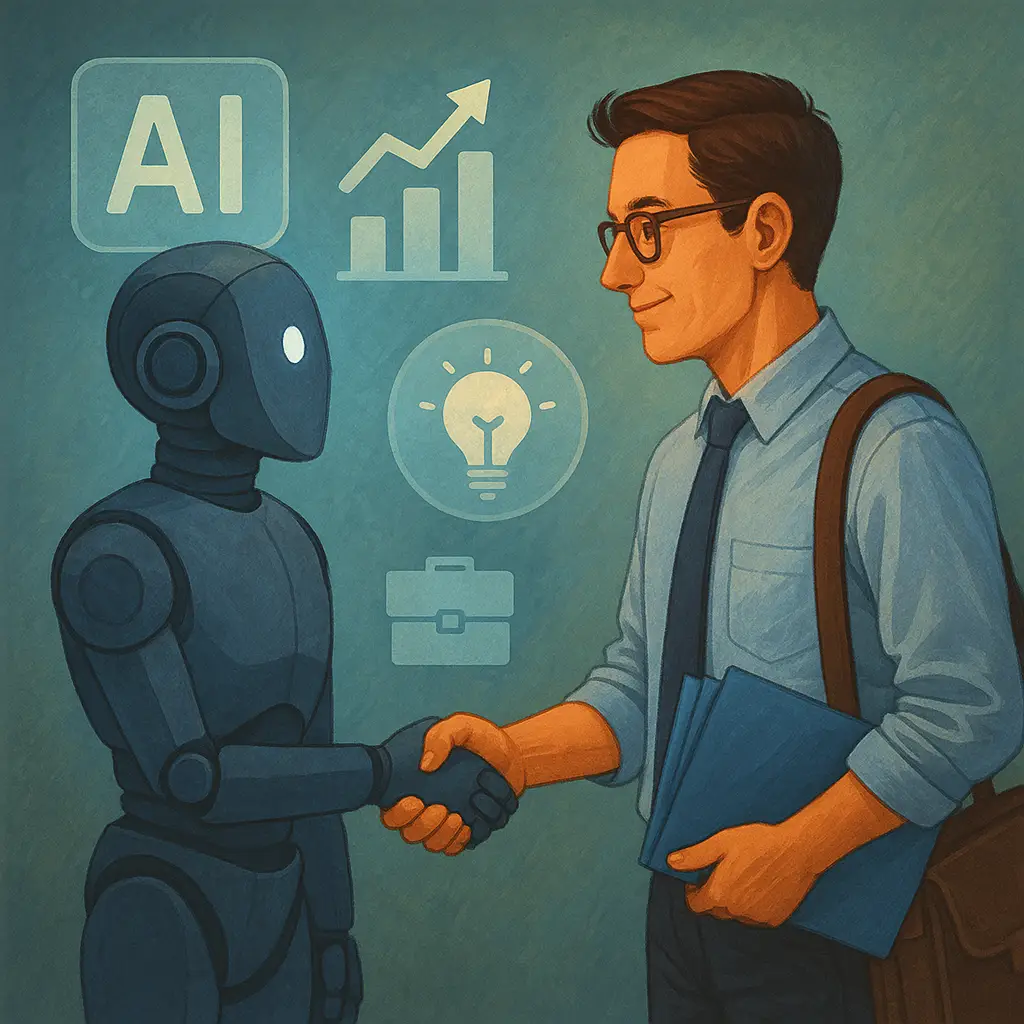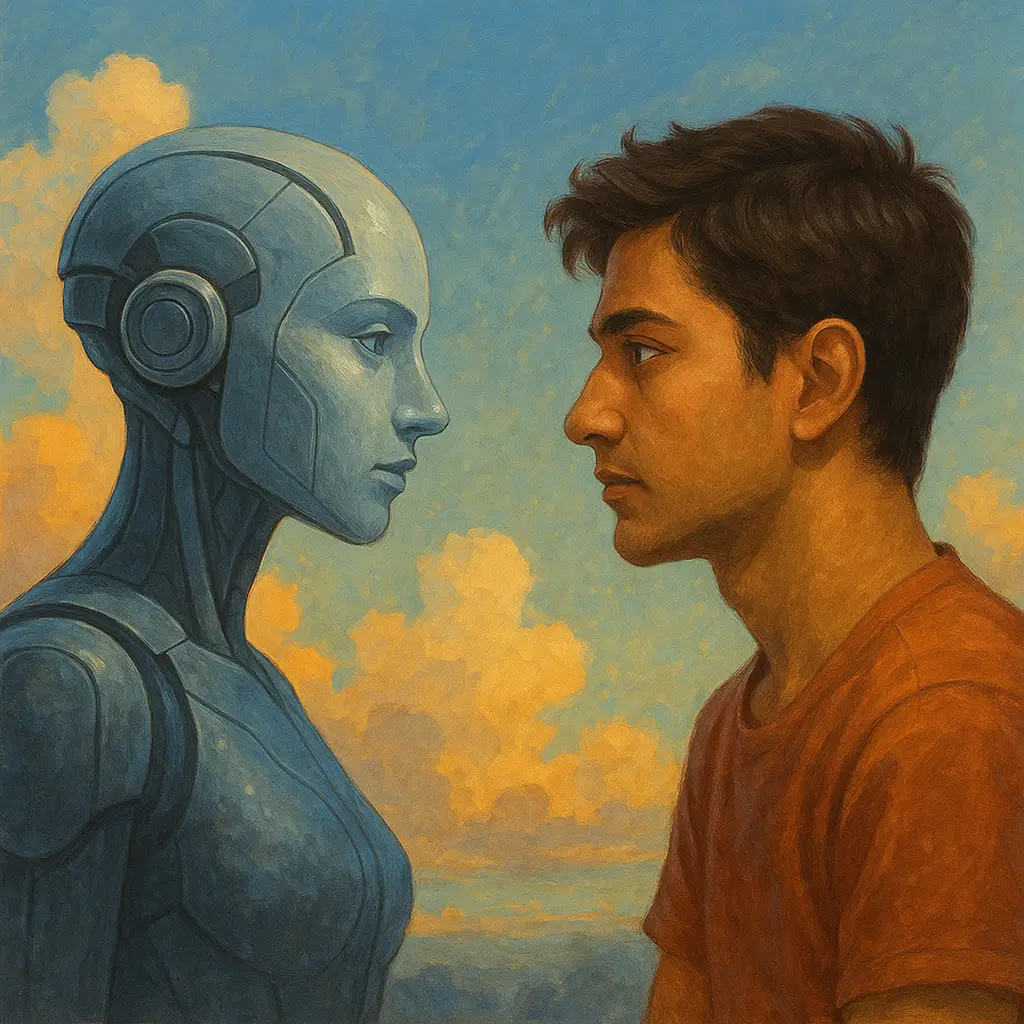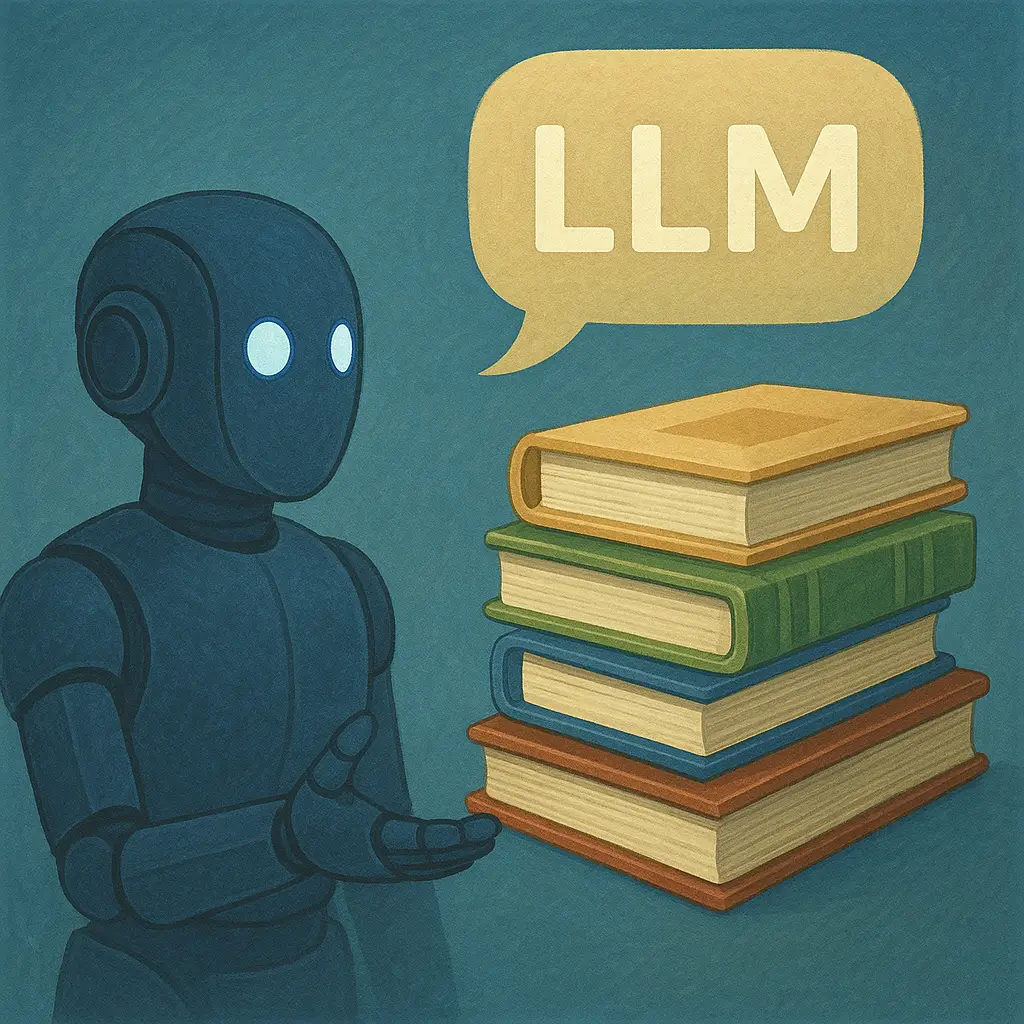
Over the last few decades, automation has steadily replaced repetitive jobs — from factory assembly lines to simple data entry. But today, we’re witnessing a deeper shift. Artificial Intelligence (AI) is no longer just automating; it’s augmenting and redefining the nature of work itself.
Jobs aren’t simply disappearing — they’re transforming. And whether you’re a fresh graduate, a mid-career professional, or a business leader, understanding how AI is changing the job market — and what you can do to stay relevant — is absolutely essential.
This article explores:
- The types of jobs being impacted by AI
- New career opportunities being created
- Practical ways to future-proof your career in the AI age
Section 1: AI Is Already Changing How We Work
You may not see robots walking around your office, but AI is everywhere:
- In your Gmail’s auto-replies
- In customer support chatbots
- In resume screening software
- In Excel’s “smart fill” feature
In India, companies like TCS, Infosys, and Wipro already use AI in recruiting, forecasting, quality checks, and customer engagement.
Let’s break it down by domain.
Section 2: Jobs Most Affected by AI
🔻 Roles Being Replaced or Shrinking
AI is excellent at predictable, rule-based, repetitive tasks. Some roles that are shrinking include:
- Data Entry Clerks
AI-based OCR (Optical Character Recognition) and auto-filling tools reduce the need for manual data entry. - Customer Service Executives
Basic FAQs and Tier 1 support are now handled by AI chatbots (e.g., HDFC Eva bot). - Tele-Sales Representatives
Outbound marketing calls are being replaced by AI-powered WhatsApp bots and personalized email automation. - Content Rewriters
Tools like Grammarly and ChatGPT can rewrite, summarize, or paraphrase with astonishing accuracy.
Section 3: Jobs Being Created or Transformed
It’s not all doom and gloom. Many roles are emerging or evolving due to AI. These often combine human intuition with AI efficiency.
⬆️ Emerging Jobs
- AI Prompt Engineers
These professionals write effective inputs to get desired outputs from LLMs like GPT-4 or Claude. - Data Labelers and Annotators
Crucial in supervised learning — especially in sectors like autonomous vehicles or voice recognition. - AI Ethics Officers
Ensure fairness, transparency, and regulatory compliance of AI systems. - Human-in-the-Loop Specialists
People who review or fine-tune AI-generated content in real-time (e.g., voiceovers, translations).
🔄 Transformed Jobs
- Marketing Managers now use AI for A/B testing, customer segmentation, and content generation.
- HR Professionals use AI to shortlist candidates and predict attrition risks.
- Teachers use AI for quiz generation, assignment grading, and personalized learning paths.
Section 4: How to Adapt — Step by Step
The most important takeaway is: AI won’t replace you. But someone using AI might. Here’s how to stay ahead:
✅ Step 1: Acknowledge the Shift
Ignoring AI won’t help. It’s not just a passing trend — it’s the new infrastructure of work.
✅ Step 2: Build AI Literacy
Start by understanding:
- What AI can and cannot do
- How ChatGPT, Bard, and Gemini work
- The basics of machine learning, NLP, and LLMs
You can learn this via:
- Free courses (Google AI, Fast.ai, NPTEL)
- YouTube tutorials (e.g., Krish Naik, Simplilearn)
- Government platforms like FutureSkills Prime
✅ Step 3: Learn Prompting
See the next article below!
✅ Step 4: Use AI Tools in Daily Work
- Use ChatGPT for meeting summaries
- Use Canva AI to design quick visuals
- Use Otter.ai to transcribe calls
- Use Notion AI for content planning
✅ Step 5: Don’t Just Learn – Do
Start a side project:
- Build an AI tool on no-code platforms
- Write a blog using AI assistance
- Record a podcast summarizing AI trends
Section 5: Soft Skills Matter More Than Ever
Ironically, as AI grows smarter, human traits will be more valuable:
- Emotional intelligence
- Ethics and judgment
- Complex problem-solving
- Cross-cultural communication
These are non-automatable — invest in them.
Section 6: What Employers Will Look For
Top skills recruiters now prefer:
| Traditional | Evolving With AI |
|---|---|
| Excel | AI-enhanced Analytics (Power BI + GPT) |
| Research | AI-assisted Research with ChatGPT |
| Communication | Creating multimedia content using AI |
| Adaptability | Ability to quickly learn new AI tools |
Section 7: Case Studies I know of
🧑💻 A Copywriter in Pune
Now uses Jasper and ChatGPT for first drafts. Focuses her time on idea development and final polishing.
👨🏫 A Commerce Teacher in Jaipur
Uses AI to generate assignments, explain complex terms in Hinglish, and create online quizzes in minutes.
🧑💼 An HR Executive in Bangalore
Shortlists 200+ resumes a day using AI + Excel filters, saving 60% time.
Conclusion: Don’t Compete with AI — Collaborate
The best way to survive the AI revolution is to become someone who can direct, use, and shape AI — not someone afraid of it.
If you’re willing to adapt, learn new tools, and combine your human strengths with machine intelligence — you’ll not only survive but thrive.
Remember: The future isn’t AI vs humans. It’s AI + humans vs those who resist change.


